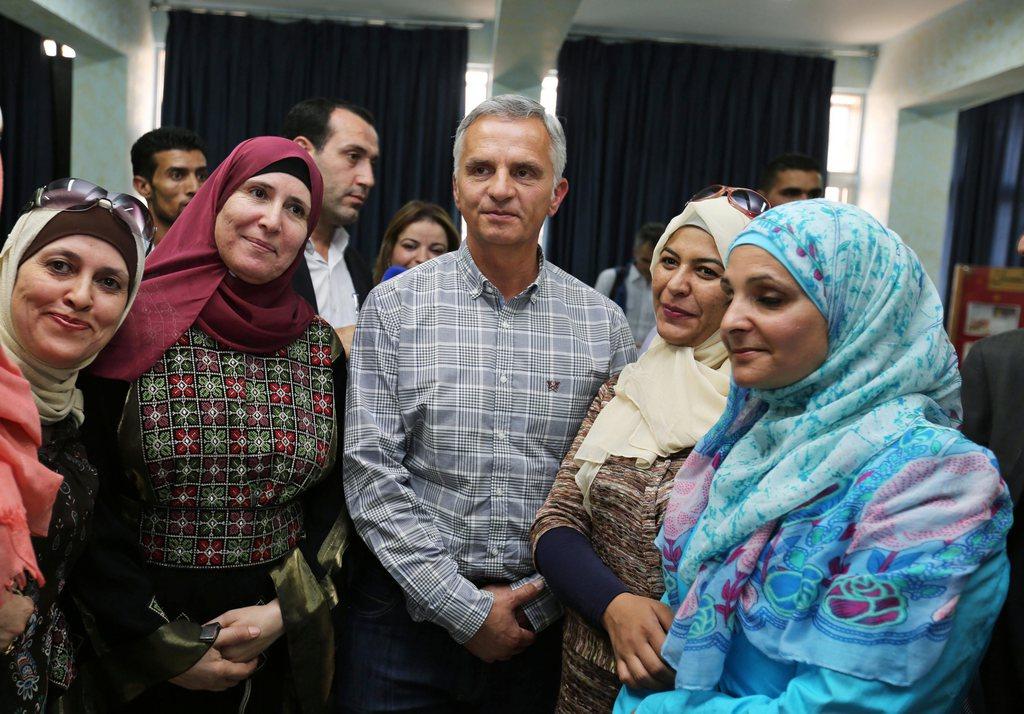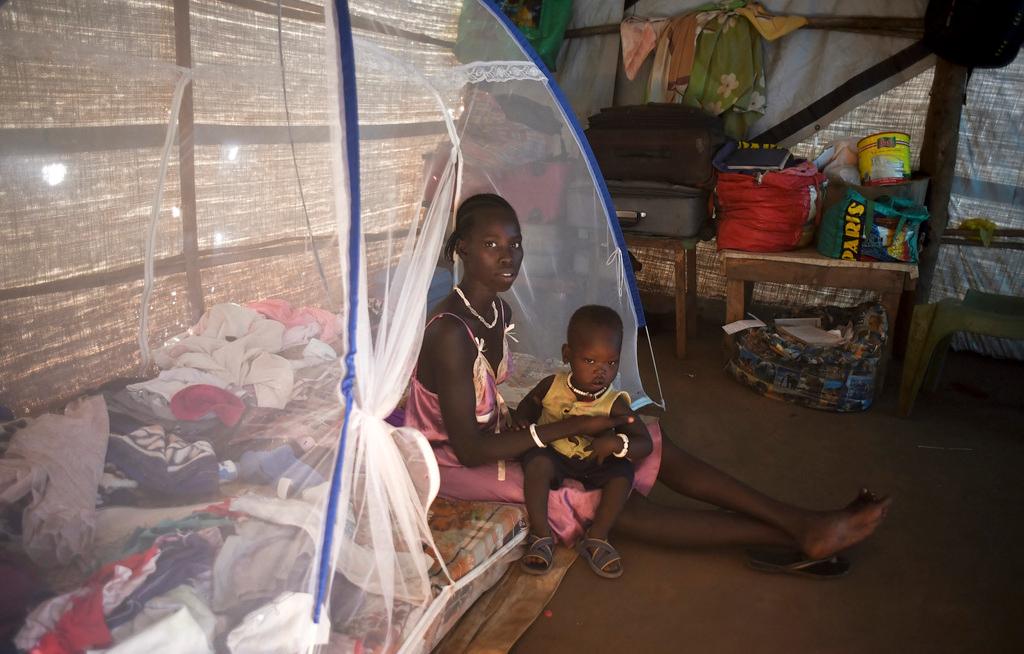Foreign minister defends aid savings

Didier Burkhalter, Switzerland’s foreign minister, says planned cuts to humanitarian aid spending are necessary given the country’s economic outlook, despite the overall budget surplus reported for last year. He also said the world needs Switzerland’s good offices now more than ever.
In an interview with Swiss public radio SRF on Saturday, Burkhalter argued that the planned CHF100 million ($102 million) in cuts simply represent a slowing to the growth in spending.
“We are just halting the growth we wanted to have because we don’t have as much money,” he said. “The economic situation in Switzerland has been quite difficult recently, and we have to prepare for the future.”
Burkhalter said the foreign ministry could stretch its budget by increasing efficiency through partnerships with NGOs and private companies.
“Partnerships are often the best solution although they are difficult,” he said. “They let you do twice as much with the same resources.”
For example, the foreign minister said businesses could be enlisted to help provide job training in regions where youth unemployment and tendencies towards extremism are major problems.
Burkhalter also said that Switzerland wants to put more of its aid resources into working with fragile states where “the possibility for the next crisis is strongest”. He predicted that conflicts over water access, for example, would become an acute problem in the coming years.
“Otherwise those will become the next places where we have to provide humanitarian aid,” he said.
Preparing and mediating
On its home turf, Burkhalter said Switzerland has long been prepared for the possibility of migration routes shifting to bring more refugees from the Middle East and Africa into the country.
“Everything is under control,” he said. “We have laws about asylum that other countries are just now discussing already on the books. When things get more difficult, we’ll make the decisions that need to be made.”
In addition to crisis prevention and refugee preparedness, Burkhalter said the international community is looking to Switzerland to take a more active role in conflict mediation. Most recently, the Swiss accepted the role of go-between for relations between Iran and Saudi Arabia.
“The good offices of Switzerland are needed more than ever, and we’ll get more mediation requests in the coming years,” the foreign minister predicted.
“I get text messages from all over the world, almost every day.”

In compliance with the JTI standards
More: SWI swissinfo.ch certified by the Journalism Trust Initiative

You can find an overview of ongoing debates with our journalists here . Please join us!
If you want to start a conversation about a topic raised in this article or want to report factual errors, email us at english@swissinfo.ch.